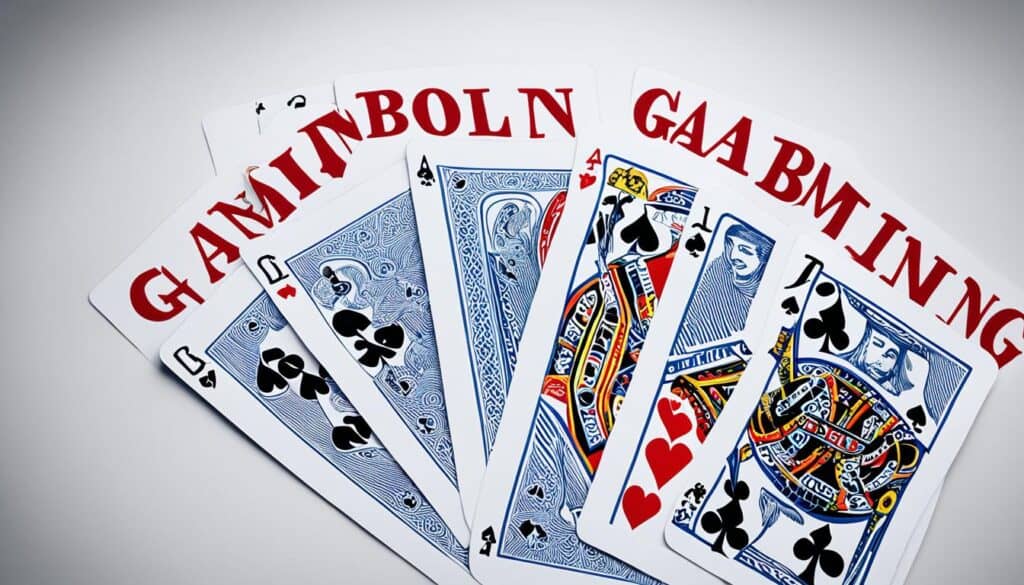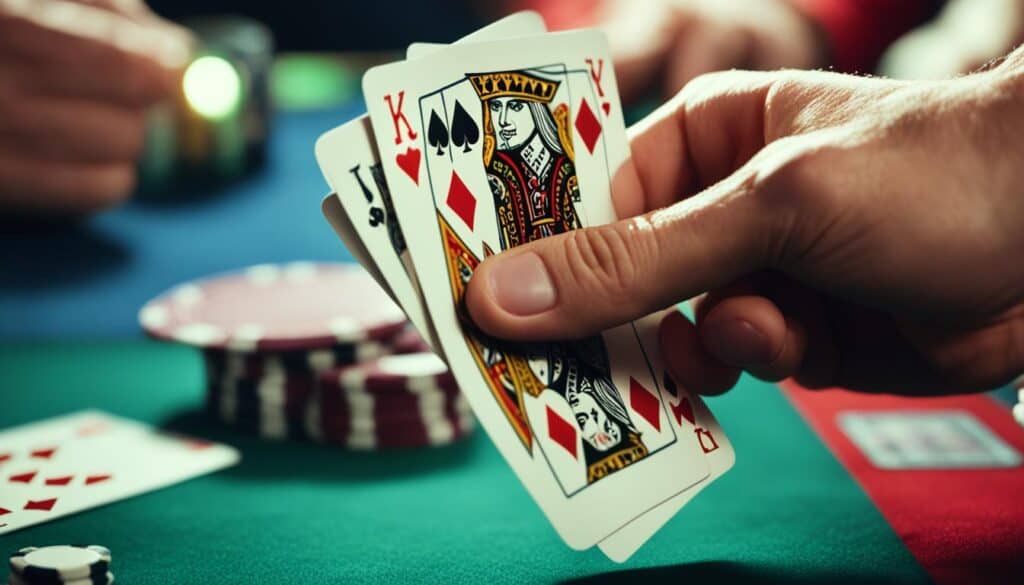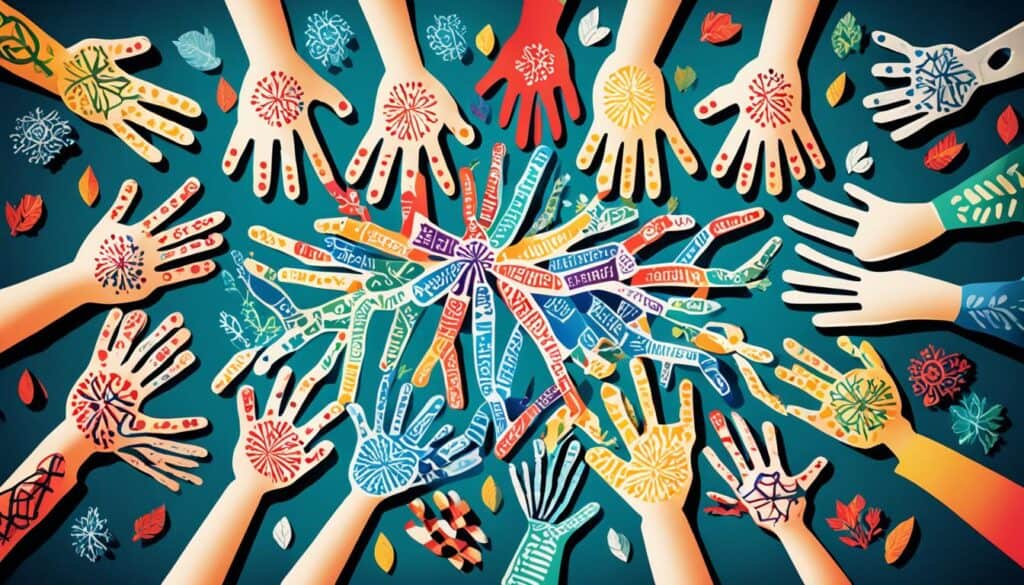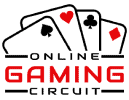Responsible gambling is more than a concept; it’s an essential practice for ensuring the integrity and sustainability of gaming environments. But what is responsible gambling? It fundamentally embodies the awareness and actions necessary for preventing addiction and maintaining gambling control. Gambling can be an enjoyable pastime when done in moderation, but the line between entertainment and problem gambling can often blur without vigilance and self-awareness.
This introduction to responsible gambling aims to shed light on the critical importance of recognizing the potential risks associated with gambling. Acknowledging the need for balance and control is paramount in preserving not just personal and economic well-being but also in promoting healthy entertainment practices across communities.
Understanding Problem Gambling and Its Impact

The complex issue of problem gambling is much more than a recreational activity gone awry; it represents a dire pitfall with grave implications for individuals and society. This compulsive behavior goes beyond occasional betting or playing; it’s an urge so intense that one’s life may become dictated by the next chance to gamble. The detrimental effects spread like ripples in a pond, reverberating through familial, occupational, and financial domains, leaving a trail of strain and devastation.
The Definition and Risks of Problem Gambling
Problem gambling, often cloaked in the guise of harmless entertainment, can quickly spiral into an uncontrollable craving, harming every aspect of an individual’s existence. It’s not simply about occasional excesses but rather a persistent pattern of gambling that persists despite negative consequences. The risk it poses is twofold—on the one hand, eroding mental and emotional wellbeing, and on the other, precipitating a cascade of dire financial consequences.
Identifying the Personal and Financial Toll
The personal and financial toll of problem gambling is a grim reality for many. Families may grapple with the emotional turmoil of a loved one’s addiction, witnessing the once-sturdy fabric of their relationships unravel. Financially, the repercussions are no less severe; savings are depleted, credit is overextended, and the financial security of entire households is jeopardized, often culminating in an oppressive cycle of debt and despair.
Recognizing the Signs of Gambling Addiction
Identifying someone struggling with a gambling addiction is pivotal in providing timely intervention. The signs and symptoms of gambling addiction may include relentless thoughts about gambling, an incapacity to cut back or stop gambling irrespective of prior resolutions, and a propensity to use gambling as an escape from problems.
- Persistent borrowing of money for gambling
- Lying to conceal gambling activities
- Withdrawing from friends, family, and cherished activities
- Experiencing restlessness or irritability when attempting to quit gambling
Becoming vigilant about these signs of gambling addiction is the first step toward addressing the issue and seeking help.
Initiating the Conversation About Gambling Concerns

One of the most crucial steps in addressing gambling issues is the willingness to initiate open and honest conversations about the risks and behavior patterns associated with excessive gambling. While starting such sensitive dialogues can be challenging, it is key to preventing further escalation and encouraging responsible gambling practices. Below are some strategies to help breach the subject and navigate towards positive outcomes.
- Express your concerns in a non-confrontational manner, focusing on the behaviors observed rather than the individual’s character.
- Highlight the availability of responsible gambling support services that offer tools and guidance for those struggling with gambling problems.
- Discuss the benefits of getting help for gambling problems early, including the prevention of more severe financial and emotional consequences.
- Encourage the adoption of positive coping mechanisms and the exploration of alternatives to gambling as leisure activities.
Conversations about gambling should aim to provide support and understanding. By addressing the issue from a place of empathy and concern, the affected individual will be more likely to be receptive to seeking help and engaging with responsible gambling support services.
Emotional Signals: Feelings Associated with Gambling

When it comes to gambling, the emotional signals that individuals experience can serve as significant indicators of their patterns of play. These feelings, when linked with gambling activities, can range from a temporary state of excitement to profound, lasting impacts. The stakes are high, as the emotional impact of gambling can affect not just the individual but also their families and communities. To promote responsible gambling, it becomes critical to be vigilant about these emotional responses and comprehend their possible implications.
Link Between Emotions and Irresponsible Gambling
Emotions play a pivotal role in many behaviors, and gambling is no exception. The link between how we feel and the decisions we make while gambling can influence responsible play. Emotions such as guilt and anxiety may arise after a gambling session, and these negative feelings can lead to an unsustainable cycle of behavior in attempt to rectify the situation or recoup losses. Additionally, the thrill of a win can reinforce positive emotions, which might encourage riskier bets in the future—potentially leading to irresponsible gambling habits.
Assessing Your Emotional Responses to Gambling
Being mindful of one’s emotional responses during and after gambling is a crucial step in assessing gambling behavior. Feelings of frustration or worry when thinking about gambling, for example, can be early signs that gambling activities may be moving beyond what is considered responsible. It is essential for individuals to examine and understand these emotional states—acknowledging when gambling stops being a source of enjoyment and starts causing emotional distress. This honest self-assessment is a cornerstone of maintaining control and ensuring gambling remains a responsible activity.
- Reflect on any feelings of guilt or regret following gambling sessions.
- Observe if gambling impacts mood and overall happiness.
- Consider how the anticipation of gambling affects daily responsibilities.
- Take note if there is a tendency to chase losses or gamble more after winning.
Conclusively, the emotional responses tied to gambling are not only signals but also opportunities to reevaluate gambling habits. By consistently monitoring and assessing emotional signals, individuals can engage in responsible play and adopt a measured, informed approach to gambling.
Identifying and Interpreting the Signs of a Gambling Addiction

The journey towards recognizing a gambling problem is unique to each individual. However, there are common signs of gambling addiction that, when identified and interpreted correctly, can act as a wake-up call for seeking help. These signs often manifest in behavioral, financial, and emotional domains, deeply affecting the individual’s quality of life and those around them.
Behavioral changes are often the most observable symptoms of gambling addiction. Recognizing these habits as problematic is the first step towards recovery:
- Consistently chasing losses despite the negative consequences.
- Lying to family and friends about the extent of gambling.
- Withdrawing from hobbies and activities once enjoyed.
- Increasing bet sizes in an attempt to win back lost money.
- Using gambling as an escape from stress, depression, or anxiety.
These behaviors, coupled with an individual’s emotional state, offer a clearer picture of the severity of the problem:
- Feeling irritable or restless when not gambling.
- Experiencing feelings of guilt or shame after gambling.
- Showcasing signs of distress, anxiety, or depression correlated with gambling activities.
Financial difficulties are also significant indicators of a gambling disorder:
- Borrowing money or selling possessions to fund gambling habits.
- Defaulting on bills or loans because of gambling expenditure.
- Having unexplained financial shortages or requests for money without a credible explanation.
- Job loss or difficulties stemming from gambling during work hours.
Recognizing these signs of gambling addiction is not about placing blame but rather about understanding and identifying the serious impacts that gambling can have. This foundational knowledge is imperative for anyone touched by gambling addiction, whether directly or indirectly, as it underscores the need for timely intervention and support.
Financial Red Flags: The Economic Symptoms of Gambling Issues

Gambling can be a pleasurable pastime when approached responsibly. However, the darker side of this leisure activity reveals itself when individuals face gambling addiction, leading to severe financial consequences that ripple through their personal and economic lives. Understanding the financial impact of gambling problems is essential not only for the individual but also for their families and society at large.
Understanding the Connection Between Gambling and Financial Strain
The economic impact of gambling addiction cannot be overstated. The financial strain that accumulates from persistent gambling often goes unnoticed until the gravity of the situation becomes overwhelming. It manifests through various economic symptoms that can cripple an individual’s financial stability. A closer look at these symptoms not only highlights the direct effects of gambling issues but also underscores the profound impact they can have on an individual’s capacity to function in society.
Spotting Financial Warning Signs of Problem Gambling
The financial consequences of gambling addiction are often hidden until they become insurmountable. Recognizing the early signs is paramount to seeking intervention before the situation spirals out of control. Below is a list of warning signs that flag a gambling problem:
- Substantial increases in debt due to unrestrained gambling expenses
- Overdue bills and financial obligations being consistently ignored
- An emerging pattern of secretive or deceptive financial behavior
- Unbudgeted and excessive gambling expenditures that strain budgets
- Borrowing money with the express purpose to fund gambling activities
- A steady erosion of savings accounts without reasonable explanation
Identifying these red flags is a critical step forward in the acknowledgement and addressal of gambling issues. The economic impact of these symptoms can extend beyond the gambler, affecting entire families and communities. It is thus imperative that these economic symptoms be regarded as urgent distress signals, warranting immediate attention and action.
Recognizing Behaviors and Thought Patterns of Gambling Addiction

To effectively identify gambling disorder signs and address compulsive gambling behaviors, a comprehensive understanding of the distinct patterns typical of addiction is required. These patterns can manifest in various behaviors, decision-making processes, and coping strategies that individuals employ, often leading to a destructive cycle. By recognizing these indicators, we can initiate timely interventions and provide support to those afflicted.
Among the hallmarks of compulsive gambling, the following are particularly indicative of a serious problem:
- Chasing losses with a firm belief that a “big win” is just around the corner, often leading to increasing debts and financial strain.
- Continuing to gamble despite facing significant relationship problems, job loss, or declining mental and physical health.
- Exhibiting withdrawal symptoms such as irritability, restlessness, or depression when not gambling.
- Lying to conceal the extent of one’s gambling from friends, family, and therapists.
- Relying on others to alleviate desperate financial situations caused by gambling.
Behavioral interventions and support services targeting these patterns are essential components of a comprehensive treatment plan for gambling addiction. If you or a loved one exhibit these behaviors, seeking professional help and support from organizations specializing in gambling disorder is a crucial step towards recovery.
Responsible Gambling: Strategies for Balanced Play

Embracing responsible gambling is essential for ensuring that gaming remains a source of enjoyment without adverse consequences. The key to adopting a balanced approach to play lies in the ability to reconcile one’s expectations with the inherent realities of gambling. Being equipped with the right tools for responsible play and understanding the principles for maintaining gambling control can contribute significantly to a sustainable gambling experience.
Expectations vs. Reality: The Mindset for Responsible Gambling
To foster a mindset geared towards responsible gambling, it’s necessary to contrast hopeful expectations against the pragmatic reality that gambling outcomes are unpredictable and often result in losses. Adopting this realistic viewpoint diminishes the likelihood of adopting harmful gambling behaviors, as players are more inclined to treat gambling as a form of entertainment, acknowledging that it is not a viable strategy for financial gain.
Establishing Limits for Money and Time
One of the most effective strategies to prevent the negative spiral of gambling addiction is to set firm boundaries on the monetary and temporal aspects of gambling activities. Here’s how to implement these limits:
- Determine a budget for gambling expenses that won’t affect everyday financial responsibilities.
- Decide on a time allotment for gambling that doesn’t interfere with personal or work obligations.
- Utilize gaming sites’ features that enable limit settings to automatically enforce these boundaries.
- Never chase losses—accept the outcome of the gambling session, whether a win or a loss, and adhere to the established limits.
By adhering to these predefined constraints, individuals can enjoy gambling as a leisurely pastime while avoiding the pitfalls that lead to compulsive gambling behavior.
Alternatives to Gambling: Exploring Healthier Choices

For many individuals grappling with the allure of gambling, finding healthier alternatives to gambling is a significant step towards a balanced lifestyle. Embracing activities that promote wellbeing and excitement without financial risk is key to coping with gambling urges. Below is a list of wholesome pursuits that can redirect the focus and provide fulfillment.
- Physical Activities: Things like jogging, swimming, or joining a sports team can improve physical health while providing a natural dopamine boost.
- New Hobbies: Creative outlets such as painting, cooking, or learning a musical instrument can be deeply satisfying and enriching.
- Relaxation Techniques: Yoga, meditation, and mindfulness can help in achieving tranquility and managing impulses related to gambling.
- Social Interactions: Spending time with friends and family who aren’t involved in gambling can reinforce positive social bonds and support networks.
- Educational Advancement: Taking a class or pursuing an area of study can provide a stimulating challenge and sharpen focus away from gambling temptations.
- Volunteering: Giving back to the community provides a sense of purpose and perspective, reducing the desire to engage in gambling activities.
By intentionally electing for these healthier alternatives, individuals can cultivate resilience against gambling urges, ultimately leading towards lasting personal growth and enjoyment.
Tools for Responsible Play and Maintaining Control

Ensuring that the thrill of gambling remains a form of entertainment rather than a financial burden hinges on the use of various responsible gambling tools. Embracing these resources can guide participants in reflecting on their gambling habits and support them in setting personal boundaries.
Utilizing Self-Assessment Resources for Gambling
Self-assessment for gambling assists individuals in gaining insights into their gambling patterns and the extent of their impact. By thoughtfully answering questions related to their gambling behavior, users can self-reflect and determine if they are at risk of developing a problem. Recognized organizations provide these assessments, which can function as a preliminary step towards proactive change.
Effective Use of Self-Exclusion Programs
For those seeking a firmer stance in taking control, self-exclusion from gambling can be an essential step. Such programs enable individuals to voluntarily request to be banned from casinos and online gambling platforms, creating a legally binding agreement that bars their access. This measure not only aids in abstaining from gambling activities but also signals a commitment to making responsible life changes.
- Provision of information sheets and online questionnaires for self-evaluation.
- Helplines offering direct communication for guidance and support.
- Collaboration with family and friends through shared app functionalities to reinforce commitments made in self-exclusion agreements.
It is essential for individuals to recognize that seeking help and utilizing these tools is a sign of strength, not weakness. Blending self-awareness with the support offered by these resources can pave the way towards sustainable gambling habits and overall well-being.
The Role of Support Systems in Overcoming Gambling Challenges

When it comes to addressing gambling addiction, the presence of a robust support system cannot be overstated. These networks serve as a pillar for those seeking to break free from the cycles of addiction and are integral to successful recovery. Navigating the complexities of gambling problems often requires not just personal resolve but the aid of both peers and professionals.
- Reaching out to friends and family for support can create a nurturing environment conducive to recovery.
- Engagement with support groups, such as Gamblers Anonymous, provides a community of individuals who understand the journey and can offer solidarity and guidance.
- Professional therapy is a vital component, with therapists specializing in addiction providing tailored strategies to help individuals regain control of their lives.
Utilizing these forms of support for gambling problems allows for a comprehensive approach that addresses various facets of help for gambling addiction. The right combination of personal involvement and professional aid is often what enables individuals to make significant strides towards rehabilitation.
With the path to recovery being unique for each individual, these support systems can be adapted to fit the specific needs of the person affected by gambling issues. Establishing such a network is an empowering step, offering not just assistance, but a foundation for rebuilding healthier habits and ultimately, a better quality of life.
The Link Between Substance Abuse and Compulsive Gambling

The intersection of substance abuse and compulsive gambling is an area of growing concern, reflecting a complex network of psychological and behavioral challenges. Recognizing the connection between these two disorders is imperative for the development of effective intervention strategies.
Addressing Dual Diagnoses: Substance and Gambling Addiction
When a person struggles with both substance abuse and compulsive gambling, they face a dual diagnosis situation. This dual challenge necessitates an integrated approach to treatment that targets both conditions simultaneously. An effective dual diagnosis treatment plan combines elements such as cognitive-behavioral therapy (CBT), motivational interviewing, and, when needed, medication-assisted therapy to address the symptoms and underlying causes of each disorder. The goal is to guide patients on the road to recovery by providing them with the skills needed to manage both addictions effectively.
Seeking Professional Help for Co-occurring Disorders
The link between substance abuse and gambling often results in a set of co-occurring disorders that requires professional help to address. It is critically important for those experiencing these intertwined challenges to seek qualified medical and psychological support. Treatments for dual diagnosis should be tailored to the individual’s unique circumstances, with a focus on holistic recovery that addresses mental health, substance detoxification, and the establishment of healthy routines and coping mechanisms.
- Assessment by specialized professionals to determine the scope of both substance and gambling issues.
- Creation of a comprehensive treatment plan that aptly addresses both disorders.
- Access to support groups and therapy sessions that cater to dual diagnosis patients.
- Ongoing monitoring and adjustment of treatment plans to ensure long-term success.
Deciphering the complex link between substance abuse and gambling is a key step in promoting effective recovery and minimizing the risk of relapse for those affected by these co-occurring disorders.
Youth and Senior Risks: Age-Specific Gambling Vulnerabilities

When considering the landscape of gambling today, it is crucial to address the specific and heightened gambling risks for youth and seniors. These vulnerable groups often engage in gambling for markedly different reasons, yet they face similarly profound risks that demand targeted gambling prevention strategies. Understanding the unique challenges faced by each group is essential in safeguarding them against potential harm.
The youth, driven by the thrill and accessibility of online gaming, may be drawn into betting environments, where they risk developing addictive behaviors during their formative years. On the other end of the spectrum, seniors, potentially seeking companionship or entertainment, may find themselves at risk of isolation and financial insecurity due to gambling.
- Increased exposure to online gambling platforms for youths often goes hand-in-hand with a lack of experience and the inability to understand the long-term consequences.
- Seniors might turn to gambling as a social activity but may have limited financial resources and a vulnerability to manipulative practices.
Therefore, robust measures for gambling prevention for these vulnerable groups must be implemented, incorporating education, age-appropriate intervention programs, and accessible support resources for both individuals and caregivers. Awareness campaigns are also paramount in highlighting the potential gambling risks inherent to both youth and senior populations.
- Emphasize the importance of critical thinking and self-awareness among youths regarding gambling activities.
- Create secure environments for seniors that provide socialization opportunities without gambling risks.
- Integrate technology-based controls to help monitor and limit gambling activities among at-risk groups.
Ultimately, it is the responsibility of the broader community, including families, educational institutions, and senior care organizations, to play an active role in gambling prevention. By doing so, we create not only a safer environment for our most susceptible populations but also foster a culture of responsible gambling practices for all.
Responsible Conduct of Gambling: Right Practices for Providers

For gambling operators, the essence of promoting responsible gambling is not only a mandate but also a commitment to the wellbeing of their clientele. Ensuring that responsible gambling practices and responsible conduct of gambling are at the forefront of their operations not only upholds regulatory compliance but also enhances the integrity and trustworthiness of the gambling industry as a whole.
Regulatory Measures and Ethical Standards for Gambling Operators
Adhering to strict regulatory measures and ethical standards is a critical part of responsible conduct among gambling providers. This commitment includes:
- Implementing effective age verification processes to prevent underage gambling.
- Offering transparent information about the risks associated with gambling.
- Ensuring fairness in gaming operations and random number generation.
- Training staff to recognize and respond to signs of problem gambling among patrons.
Promoting the Importance of Gambling Moderation and Support
Raising awareness about gambling moderation involves several key strategies that gambling operators can employ:
- Providing resources and tools for self-control, such as deposit limits and self-exclusion options.
- Establishing partnerships with organizations that offer support and counseling for gambling issues.
- Creating targeted campaigns that encourage responsible gambling behaviors.
- Facilitating open communication channels for players seeking advice or assistance with their gambling habits.
Gambling operators have the ability to create a safe, ethical, and responsible gaming environment. By implementing these practices, providers take meaningful steps towards combating problem gambling and establishing a culture of responsible play.
Pathways to Help: Where and How to Seek Gambling Support Services
The journey towards recovery from gambling-related issues can be daunting, yet numerous pathways offer hope and assistance. Recognizing the need for help is the first brave step an individual can take. For those grappling with where to find help for gambling problems, the foundation lies in the myriad of gambling support services available across the United States. Local treatment centers provide in-person counseling and therapy; these institutions are pillars of support for individuals and families affected by gambling problems, offering tailored plans for each unique situation.
Moreover, self-assessment tools have become increasingly accessible, allowing individuals to gain insight into their gambling behaviors discreetly and privately. These resources can clarify the need for further help and are often the first point of contact with gambling support services. Additionally, national organizations, such as the National Council on Problem Gambling, form an extensive network dedicated to supporting those affected by gambling issues. They serve as a gateway to numerous resources, including hotlines and online forums that guide individuals towards recovery.
When seeking professional support services, it’s imperative to remember that recovery is a personal journey. Every step taken towards help is a positive one, no matter how small. By exploring the available options and reaching out, recovery from gambling addiction can become a hopeful and transformative experience.
 Online Gaming Circuit
Online Gaming Circuit




